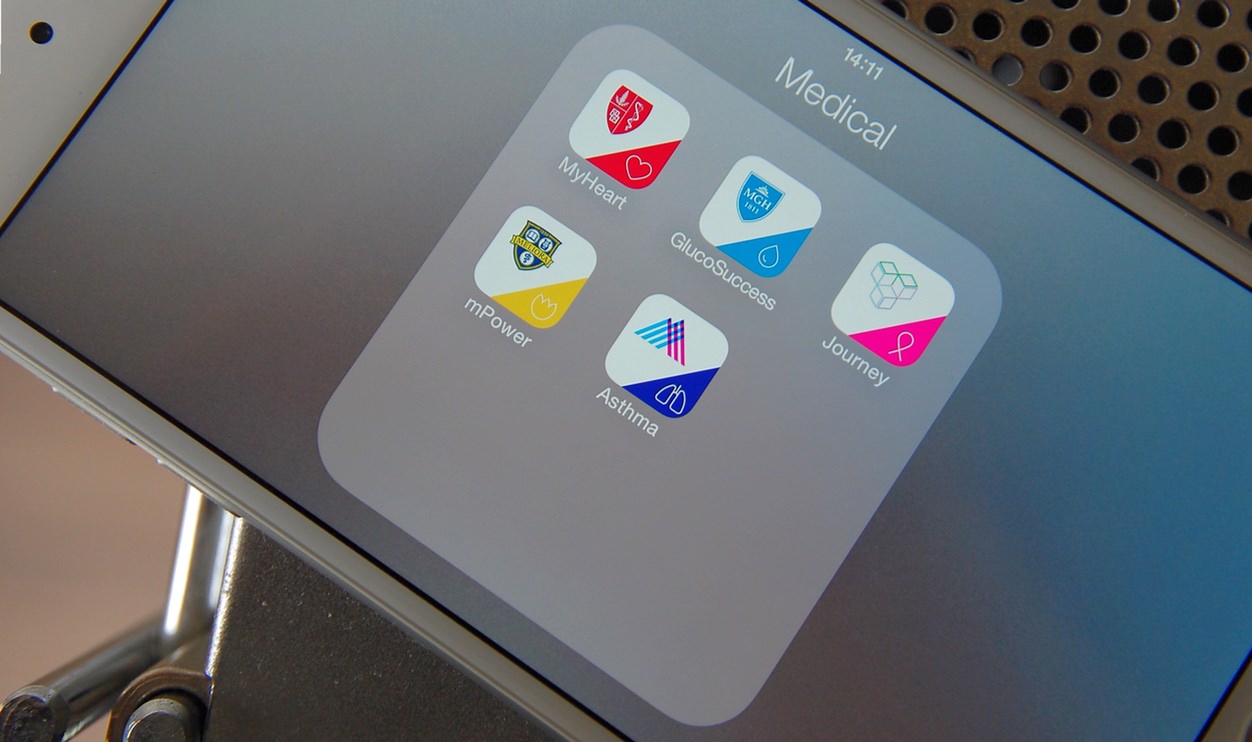„I can’t tell you where I work, and I can’t tell you what I do, but I need to talk to you.“
Im Dezember 2013 trafen sich Jeff Williams, Bud Tribble und Michael O’Reilly mit hohen Vertretern des US-Gesundheitsministeriums. Nick Bilton und Brian X. Chen lagen mit ihrem damaligen Bericht für die New York Times fast richtig: Zentrales Gesprächsthema der Zusammenkunft dürfte jedoch nicht die „iWatch“ gewesen sein, sondern ResearchKit.

Daniela Hernandez ergänzt die Timeline der Entstehung des Apple Projekts und konzentriert sich unter anderem auf den Open-Source-Aspekt:
Given Apple’s historical approach to data-hoarding—and the way it has traditionally refused to open-source its code—its willingness to partner with an open-source advocate like Friend is a surprise. But Apple may not have had much of a choice. Given the upcoming release of the Watch, “there is probably some interest in Apple in leveraging that new [wearables] market…to attract more people to the iPhone platform,” said Bernard Munos, the founder of the Innothink Center for Research in Biomedical Innovation. “They could also invite entrepreneurs to make clever plug-in devices.” If people are hungry to track and share their symptoms, they’ll likely flock to the platform that gives them the best tools to do that. Other tech companies like Google and Microsoft are likely working on a similar projects, but now that Apple has beat them to the punch, they’ll have to play catch-up: Whatever they come up with will be measured against ResearchKit, especially when it comes to privacy.
„The inside story of how Apple’s new medical research platform was born“
ResearchKit dreht sich nicht alleine um die Frage von Privatsphäre und Datenschutzbedenken. Die Sammlung von medizinischen Daten, in einem Umfang wie sie Apple in der Lage ist zu erheben, führt sehr schnell zu Fragen von Monopolstellungen und Gatekeeper-Positionen.
Niemand will seine Gesundheitsdaten einschließen oder riesige Firmen in Kopie setzen. Obwohl Apples Entscheidung für den Open-Source-Ansatz der absolut richtige ist, kann ich mir nicht vorstellen, wie ResearchKit ohne ihn funktionieren könnte. Google Health probierte zwischen 2008 und 2012 etwas vergleichbares, scheiterte aber weil niemand seine Akte bei dem Unternehmen führen wollte.